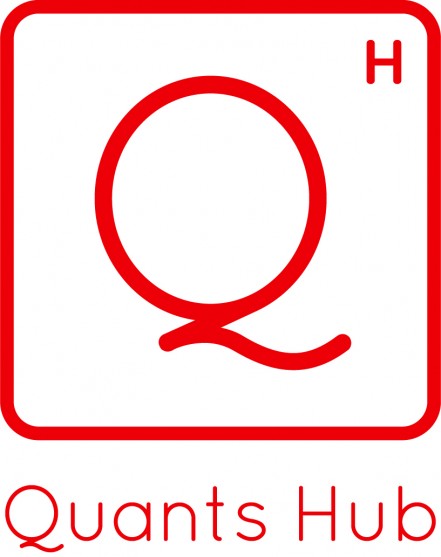Why you should learn F# in 2015 (and how)?

I guess that it might be a bit too late for adding to your list of new year's resolution now. But just if you still have an empty slot (or in case an originally taken slot has become available), your new year's resolution should be to get involved with F#!
Obviously, the goal of this blog post is to sell you some of my F# trainings and other materials - including the online course on F# in Finance and our FastTrack to F# course in London and New York and also the F# Deep Dives book. But to conceal this fact, I'm going to fill most of the blog post with useful information about F#, the F# Software Foundation and the F# community (but if you really just want to read about my courses, scroll down to the second section).
Why you should get into F# now?
F# has been around for some time. So, why should you be interested in F# in 2015? Both the F# community and the F# language and ecosystem have been evolving in the last few years. In this article, I'll look at the most interesting recent trends that, I think, make F# more interesting than ever before.
Friendly and active community

Perhaps the most amazing thing about F# (and one of the reasons for looking into F#) is the community around it. In the last year, I visited 10 user groups in Europe and US and I met fantastic people at every single meetup. For an even more comprehensive study, see Mathias Brandewinder's tour report.
Where else do you see 8 year olds making an army of 3D man or startup founders having fun with Warhol and Mona Lisa?
The number of user groups on the Community for F# page is now 31 (compare that with 19 user groups a year ago and 12 user groups two years ago). The F# meetup in London now has over 860 members (more than the .NET user group). Finally, the number of #fsharp tweets per day is growing too!
Growing slowly, but surely
The number of F# user groups simply follows a general trend. F# is not driven by any hype, so there are no crazy jumps, but instead a steady growth. To learn more, you can check the growing list of happy F# user testimonials including line-of-business applications, financial systems, startups and even (real) architects.
Last year, F# even managed to get on 12th position on TIOBE, which may be a suspicious methodology of measuring programming language popularity, but it is certainly showing some trend.
Another great way to see the F# growth is to check F# Weekly - a newsletter aggregating F# articles and other resources. It is difficult to give a concrete number (because of holidays etc.), but it feels that we might need F# Daily soon!
Serious open source engineering
One of the reasons why I'm really excited about the F# community is that it takes open source very seriously. I guess that this can be summarized by the following tweet:
Wow. Already 114 pull requests for the official @VisualFSharp compiler. As comparison #roslyn has 18. #fsharp community rocks.
— Steffen Forkmann (@sforkmann) September 8, 2014However, this is talking only about the F# compiler and core libraries. The F# community is developing an amazing number of libraries (see fsprojects on GitHub) and is very serious about their quality. This is best demonstrated by the ProjectScaffold template, which makes it easy to create well-documented and tested libraries (see my talk Taking your craft seriously with F#).
Why does this matter? It encourages the community to be active. When we do not like something, we do not complain, but we change it! The best example of this is the Visual F# PowerTools project - a community effort that adds refactoring and other advanced tooling for F# (and solves a common complaint about F#).
Web, cloud and data science
What would be a blog post without some buzz-words? However, all the three terms in the heading are important and will, no doubt, matter even more in 2015. And the reason why I'm mentioning them is that there are great open-source projects for all three of them - two of those were actually open-sourced with a permissive license at the end of 2014, so I'm looking forward to the developments next year!
- In the area of web development, you should watch WebSharper 3.0, which is now Apache licensed! WebSharper lets you write both client-side and server-side code with F# and is an amazing piece of work.
- For cloud-based and distributed computing, the recently open-sourced MBrace Framework gives you a fantastic model based on distributed computations with the "cloud monad".
- For data science, we're actively working on FsLab, which puts together F# Data type-providers, data analytics libraries such as Deedle and other. If you're using Visual Studio, check out the FsLab Journal template.
Now, there are many other libraries that I didn't mention here. The main reason is that the above 3 have been started (or open-sourced under Apache) in 2014, so I expect there will be a lot happening over the next year.
Setting solid foundations with the F# Foundation
At the end of 2014, the F# Software Foundation has become an official non-profit organization. This reflects the fact that the community around fsharp.org has become the center-point of many F# activities and needs a proper ownership structure with a board elected by the community. At the moment, we are nearly done with setting up the necessary structure and you can join the foundation and participate in board elections in 2015.
The F# ecosystem is very community-driven and I believe that, once a proper board is elected, the F# Foundation will be an important mechanism for the development of the F# language, core libraries and tools, but also for supporting the community, running interesting events and providing an important long-term guarantee that makes F# attractive to businesses.
So, if you want to be one of the people who were there since the beginning, you can join now!
The advertising part: Books, trainings and consulting
As I promised at the beginning, I'll conclude this article with a bit of advertising. So, if you added F# to the list of your new year resolutions, where should you start?
F# and Functional Programming in Finance

This is an online course teaching F# from the beginnings. The theme of the course is focused on finance, so there is one lecture on numerical computing and one lecture on time-series analysis, but it can serve as a good F# introduction even if you're working in another domain.
You can find more information on course page at QuantsHub. Also, there is a 20% early bird discount if you book by Friday 9th January 2015 (drop me an email at tomas@tomasp.net by Friday if you need to get an approval and Friday is too soon).
Fast Track to F# in London and NYC
We will be also running the FastTrack to F# course with SkillsMatter in London and New York this year. The page does not yet list all the dates, but there will be more. I'm happy to offer 10% off to the readers, so drop me an email at tomas@tomasp.net if you're interested!
The FastTrack to F# course is a 2 day course that combines introduction to the language (to get you started in the first day) with a focus on solving practical problems ranging from working with data and type providers to testing and domain specific languages in the second day.
On-site trainings from fsharpWorks

Finally, if you are looking for an on-site training or F# consulting (or a combination of both) to get your team started with F#, then you should check out fsharpWorks. I started fsharpWorks together with three other F# experts: Phil Trelford, Mathias Brandewinder and Scott Wlaschin.
fsharpWorks covers pretty much all F# areas that you might be interested in - financial computing, domain driven design, machine learning and much more, so if you're ready to take F# seriously in 2015, drop me an email at tomas@tomasp.net!
New book: F# Deep Dives

Finally, after a long wait, the F# Deep Dives book is finally out! Unlike existing books, F# Deep Dives is not really aimed at teaching you F#. Instead, it tries to show you the different domains where F# is used in industry and demonstrate how F# developers approach problems. It is a collection of real-world case studies, each written by expert practitioners including Phil Trelford, Dmitry Morozov, Evelina Gabasova and many other.
You can read this book in a number of ways - pick the domain that you are interested in (games, finance, line-of-business applications, etc.), pick the technique (domain-specific languages, type providers, etc.), or you can skim the first few pages of each chapter to see how F# is used to solve real-world problems.
Published: Wednesday, 7 January 2015, 2:36 PM
Author: Tomas Petricek
Typos: Send me a pull request!
Tags: c#, f#, functional programming, talks